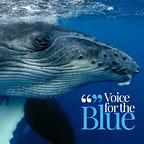I have been getting a lot of pushback lately.
Not small disagreements. Real hostility. The kind that fills your inbox with words like hoax, propaganda, and cult.
A few years ago, I would have replied with graphs and studies to prove people wrong. I thought facts could fix it.
They do not.
After a while I realised this is not really about science. It is about fear, exhaustion, and belonging.
People do not want to be afraid anymore. You cannot see carbon dioxide. You cannot touch ocean heat. There is no single event to point to. Calling it a hoax feels easier than accepting that something invisible is changing everything.
The word cult has become a weapon. It turns evidence into opinion and disbelief into rebellion. When science is treated like faith, everyone can choose their own version of the truth.
The psychology of needing to be right
In the book I am writing, I look at why people defend their beliefs even when the facts are clear.
Psychologists call this epistemic arrogance. It means needing to feel certain, as if being right proves who you are. Researcher Adam Grant says most people think like preachers, prosecutors, or politicians. We either try to convince others, attack those who disagree, or say whatever keeps our group happy. Very few people think like scientists, who stay curious, test ideas, and change their minds when new evidence appears.
Moving from trying to win to trying to understand is what creates progress. It is called intellectual humility, and it helps reduce arguments and division.
Once belief becomes part of identity, logic stops being about truth and becomes about loyalty. Research at Yale shows that people do not process information to be correct. They do it to protect who they are and the group they belong to. That is why people double down when challenged. It is why an open conversation works better than a fight. It shows that talking is safe.
There is also something called the backfire effect. When someone is shown evidence that challenges what they believe, they often end up believing their own view even more strongly. The new information feels like a personal attack.
Another idea, from psychologist William Miller, is the reason reflex. It is the urge to correct or argue the moment we hear something wrong. Doing that only makes the other person repeat and strengthen their own argument. The better approach is to listen and help them discover their own reasons to think differently.
Why this matters now
This pattern is not new, but social media has made it worse. Algorithms reward people for being loud and certain. Calm discussion rarely goes viral. Outrage travels faster than understanding.
We now live in a world that rewards performance over reflection. Being right has become part of our identity instead of a search for truth.
Years ago, I wanted to win every debate. Now I do not. I still share facts, but only to make sure everyone is starting from the same ground before we talk. Arguing to win builds walls. Inviting conversation builds bridges.
The planet does not need me to be right. It needs me to be effective.
The real cult
If there is a cult here, it is not the one reading ocean data. It is the cult of convenience. This one worships comfort, speed, and growth, while pretending consequences do not exist.
Calling science a cult is the perfect defence. It lets people stay comfortable while pretending they are the brave ones who see the truth.
Deep down, most people know something is wrong. You can feel it in the weather, in food prices, in the changing seasons. Denial is not disbelief. It is delay.
The quiet work
Real progress does not come from winning arguments. It comes from finding people who are ready to listen, even for a moment.
Facts matter, but connection changes people. No one changes because they lose an argument. They change when they feel safe enough to question what they believe.
People call it a cult because they mistake care for faith.
Caring about the planet is not ideology. It is responsibility.
I record Voice for the Blue because ocean stories deserve to be heard. I write Ocean Rising so those stories reach you each week, freely and independently.
This is only possible thanks to a small group of paying subscribers. Their support keeps it free for students, activists, and communities worldwide.
If you find value here, please consider joining them.
I will be back in your ears next week.
- Luke











